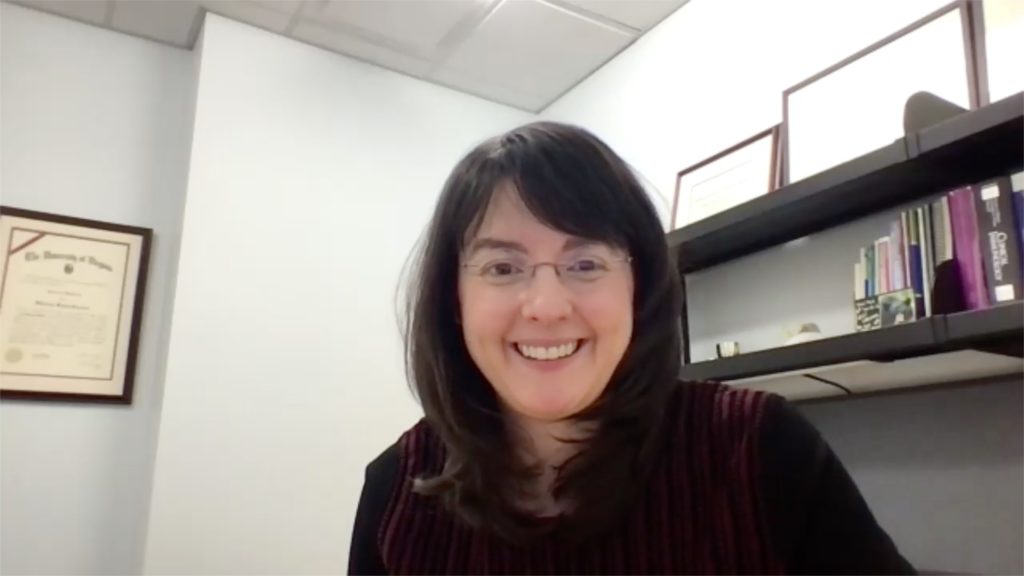Dupilumab is used to manage chronic rhinosinusitis with nasal polyposis, however there is limited data regarding its use in patients with aspirin-exacerbated respiratory disease (AERD). touchRESPIRATORY caught up with Dr Isaac Schmale (University of Rochester Medical Center, Rochester, NY, USA) around the aims, eligibility, methodology and findings of his study investigating the real-world outcomes of dupilumab therapy for nasal polyposis in patients with AERD, and how these new insights will optimize our use of dupilumab in patients with AERD.
The abstract ‘Real-world Outcomes of Dupilumab Therapy for Nasal Polyposis in Patients with Aspirin-Exacerbated Respiratory Disease‘ (Abstract number: 672) was presented at AAAAI 2023, February 24–27, 2022, #AAAAI2023.
Questions
- What is already known about the efficacy of dupilumab in patients with aspirin-exacerbated respiratory disease (AERD)? (0:34)
- What were the aims, eligibility, and methodology of the current study? (1:35)
- What were the most important findings of the study? (3:06)
- How will these insights optimize our use of dupilumab in patients with AERD? (5:29)
Disclosures: Isaac Schmale has nothing to disclose in relation to this video interview.
Support: Interview and filming supported by Touch Medical Media Ltd. Interview conducted by Atiya Henry.
Filmed in coverage of the American Academy of Allergy Asthma & Immunology Annual Meeting 2023.
Transcript:
My name is Dr Isaac Schmale. I’m rhinologist and skull-based surgeon at the University of Rochester Medical Center in Rochester, New York. And I have a practice that is very geared towards seeing patients with nasal polyps and allergies. And I see a lot of patients with aspirin exacerbated respiratory disease, which was the motivation of the project that we’re going to be talking about.
What is already known about the efficacy of dupilumab in patients with aspirin-exacerbated respiratory disease (AERD)? (0:34)
I think quite a bit is known about the efficacy of dupilumab for aspirin exacerbated respiratory disease from the large clinical trials that were done to get the medicines approved originally. So for dupilumab there was a large industry sponsored trial that looked at lots of patients and many of them had AERD and it showed, relatively similar efficacy and safety in that group. The difficulty with that ii there are very strict entrance criteria, you know, the way the medicine is used along with other medicines as you get into those trials because you really want good data. So it doesn’t always apply well to what happens in the real world. So that is less known and is only really just starting to be published on, as you know, what happens outside of these industry sponsored trials to patients who use dupilumab for AERD.
What were the aims, eligibility, and methodology of the current study? (1:35)
The aim of me and my colleagues’ study was to look at dupilumab prescriptions for nasal polyps, specifically in patients with a coexisting diagnosis of aspirin exacerbated respiratory disease. So the eligibility for our study was that all patients were diagnosed with nasal polyps as a first criteria. And then we verified through the electronic medical record that we have in our region that they also had a diagnosis of aspirin exacerbated respiratory disease and were prescribed dupilumab for nasal polyps indication. So every patient in our study was prescribed dupilumab for the nasal polyps side of their condition and not for asthma as a primary reason for that prescription. So we determined who was eligible for our study by querying our electronic medical record and searching for patients who had a nasal polyps diagnosis and also a diagnosis of aspirin exacerbated respiratory disease. And then we also searched for patients who were prescribed dupilumab for a nasal polyps indication. And that sort of defined the cohort in our study were patients with aspirin exasperated respiratory disease and a prescription for dupilumab that was submitted under the nasal polyps indication.
What were the most important findings of the study? (3:06)
I think in our study, the most important finding is showing that dupilumab when used in aspirin exacerbated respiratory disease for patients with symptomatic nasal polyps, were that patients did very similar to large previously published trials that were prospective and also including patients who did not have aspirin exacerbated respiratory disease. So we found that almost 3/4 of patients met a minimally clinically important difference on the SNOT-22 after initiation of treatment, and also that their nasal polyp score decreased significantly by just over a one point improvement. There was also 19 patients, or almost a third of our patients that had tried a previous biologic and then switched to dupilumab. Those patients responded at a very similar level to first time users, which I think is an important finding, knowing that even if patients had failed other biologics, that if they have aspirin exacerbated respiratory disease, they have essentially the same shot responding to dupilumab as they would have if they hadn’t failed the previous biologic. The other important finding was that it was very well-tolerated and safe. So we only had four patients or around 7% discontinued due to side effects, which is similar to previous trials. And overall, only two patients discontinued their treatment due to lack of perceived effects. So, very efficacious in this specific cohort. I think one of the unique things about our study and showing these results is that the prescriptions came from any type of provider, whereas most studies previously tend to come from one very specific clinic. So there’s a couple of papers out where AERD center looked at their results and it was from prescriptions from all allergy immunologists. Or there are some studies where it’s all from an ENT clinic and it’s prescriptions of theirs only. So our study is unique in the fact that we didn’t restrict by who was prescribing or what the criteria were. And even still in this cohort, it appeared to be very safe and effective for treatment of AERD.
How will these insights optimize our use of dupilumab in patients with AERD? (5:29)
I think that the more evidence that we have that the medicine is safe and effective for a certain population, the more treatment with it will be adopted. So that’s one aspect of why this is important. I think this study also highlights that even in the face of multiple previous failed biologics, patients still have a very good chance to respond to dupilumab if they have AERD, which is useful information for all patient providers who treat AERD, as we know it can be a very refractory and frustrating condition for patients. And then I think that, the study highlights that for AERD specifically, which has two indications potentially for the use of dupilumab, potentially the most cost effective use for dupilumab is for treating both asthma and nasal polyps at the same time. That tends to be, at least previous to this, one of the more difficult conditions to control otherwise.
Subtitles and transcript are autogenerated





